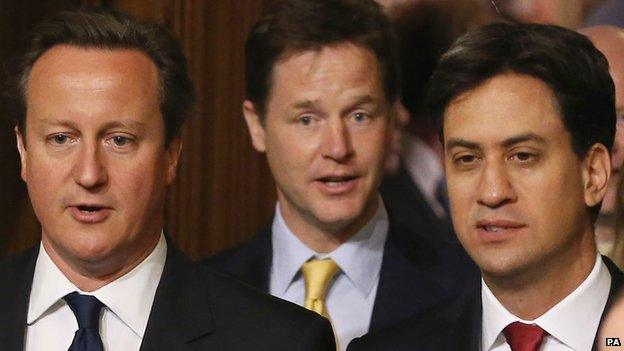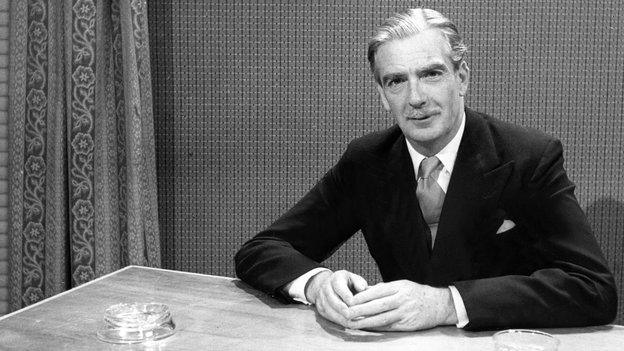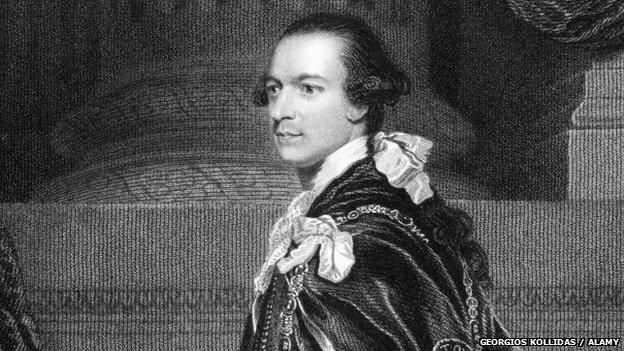What's gone wrong with party politics?
- Published

Most experts believe the general election will result in a hung Parliament, with no single party able to command a parliamentary majority.
Political commentator Danny Kruger believes there are deep structural problems with the party system.
He offers a personal view of what has gone wrong, and what needs to change.

What has gone wrong with the party political system?
This election is both the most exciting and the most depressing I can remember.
It is exciting because anything could happen.
What multicoloured combination of parties and personalities will be taking over Downing Street in the days or weeks after 7 May?

The Conservatives and Labour took a total of 96% of the vote in the 1955 election, when the Tory Sir Anthony Eden became prime minister
But it is depressing because the debate is focused on such minute differences of policy.
The campaign consists of insults thrown with passionate force across the distance of a pinhead.
The problem is the parties. Mindful of their bases (hence the insults thrown at the other side), they nevertheless have to appeal to the swing voter (hence the non-choice in policy).
Aware of voters' real concerns and attitudes (especially resentment at immigration and hatred of politicians), they nevertheless blandly pretend that theirs is the national conversation.
They imagine that what they talk about on The Daily Politics is what people talk about with their families and friends.
Trying to sound reasonable, they nevertheless sound mad - partisans appealing to a non-partisan electorate.
The party system means that the public (and most of all the people I work for, ex-offenders and youth at risk, for whom no party speaks and among whom no politicians seeks votes) are excluded entirely.

Why?
The roots of the problem lie in the late 18th century, when "party" first became a respectable word.
Previously, any attempt by politicians to act together in opposition to the king's government was denounced as "faction" - a short step from treason.

The Marquess of Rockingham led the fight against the King's government
The problem was that the government of King George III was deeply corrupt, and in time a group of politicians, the Rockingham Whigs, external, had the courage and independence to band together to defeat the Crown and drive its influence out of Parliament.
Party was born as a counterweight to corruption.
But in due course two parties formed around the great divide in the Industrial Revolution - the parties of capital and of labour.
And this, in my view, is the problem now.
Both the original rationale for party, and the bases of the main parties we now have, are gone.
We do not have corruption by the Crown, and since 1989 the capital versus labour divide is meaningless.
We have another form of corruption - not merely that some parliamentarians are blatantly in the pockets of corporate lobbyists, but the condition that makes this possible.
We have lost any compelling moral narrative in our national life, any sense of purpose about what political activity is for.
So instead of an intellectual economic disagreement between capital and labour, we have a nasty class war.
Labour implies that anyone with wealth is an idle plutocrat, and the Conservatives suggest anyone on benefits is an idle scrounger.
It is hardly the democracy our ancestors fought for.

What to do?
We need to go back to the world before the Rockingham Whigs - without the corruption by the Crown, of course.
I do not fear the Queen's interference in politics.
I fear the parties, which originally formed a bulwark against established power and are now its fortress.
As Brian May, the musician and campaigner, has been arguing, people should ignore party labels and vote for candidates of character, of any party or none.
We need more independents in Parliament, who will join together or oppose each other depending on the issue before them.
We also need to stop appointing ministers from the Commons, so that Parliament becomes what it was supposed to be before the king corrupted it - the check on the executive, not the executive itself.
But of course this will need the support of MPs, most of whom want to be ministers - and not many of our current turkeys are going to vote for that Christmas.
Danny Kruger runs Only Connect, a criminal justice charity working with prisoners and youth at risk in London. He was formerly an adviser to David Cameron.